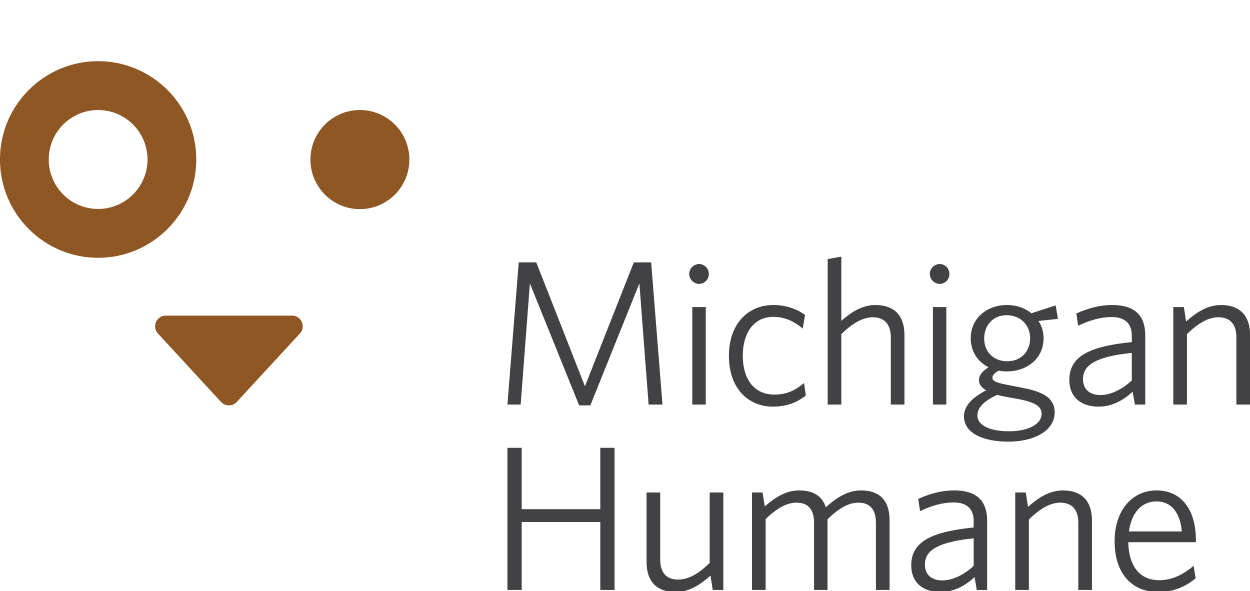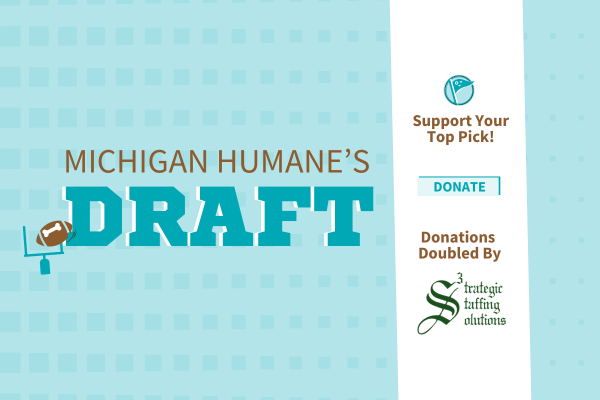In 1907, the Scout motto – “Be Prepared” – was created by an English soldier, and it was first published in 1908, two years before the Boy Scouts were founded. The 1947 Girl Scout Handbook defined the motto this way: “A Girl Scout is ready to help out wherever she is needed. Willingness to serve is not enough; you must know how to do the job well, even in an emergency.”
Put another way, preparation is about more than good intentions or a belief that you can “wing it” and everything will be fine. To provide an example in the context of caring for animals, while you may know that you would never leave your animals behind in an emergency, true preparedness means having a plan and the supplies required to evacuate with them should the need arise.
Michigan Humane both advocates for preparedness and is also uniquely prepared to assist in emergency rescue situations involving animals.
- Michigan Humane created a brochure to help animal guardians understand how to prepare for an emergency and create a personal disaster plan that includes the guardians’ animals. As part of the plan, Michigan Humane also created a template that can be used to collect and maintain critical animal identification information, which can be particularly important if guardians and their animals are separated somehow.
- Michigan Humane’s Statewide Response Team is available to provide expert, hands-on assistance rescuing animals from a natural disaster, cruelty or neglect, or other situation where an animal is in jeopardy. In recent years, Michigan Humane has traveled to Texas, Louisiana, and Florida to help with disaster relief. Locally, a special search and rescue team was recently deployed to help a dog that had traveled across a semi-frozen portion of the Detroit River to a small island near Belle Isle. The Michigan Humane team is the only one in the region to have the necessary water rescue training and equipment to assist in such a situation. Michigan Humane also provides training to other agencies to prepare them to handle animal-related emergencies in their communities.
- Michigan Humane is also working to introduce a bill to create a veterinarian mobility statute that would allow out-of-state veterinarians with expertise in disaster relief, disease outbreaks, or neglect or cruelty cases to come to Michigan to provide help in an emergency. Such statutes, which have been enacted in a handful of states, allow a veterinarian to obtain the necessary permission in the form of a short-term license to practice in the state where their assistance is required. Introduced last session as part of a larger, more complex bill that did not pass, we are planning to reintroduce the veterinarian mobility component as a stand-alone bill this session.
One of the many things the COVID-19 pandemic has taught us is the importance of being prepared, not just with good intentions, but with an action plan and the necessary supplies to carry out the action plan when it is needed. We are striving to help individuals, other animal welfare agencies, law enforcement, and the state to be as prepared as possible to address any animal-related crises in the most humane and effective manner possible.
We are going to keep working to improve animal welfare and serving as a voice for the animals through advocacy. Together, we can continue to make a difference in animals’ lives. If you know someone who you think would be interested in this information, please share this article and encourage them to sign up for our Legislative Action Network.
Photo credit: Pexels


